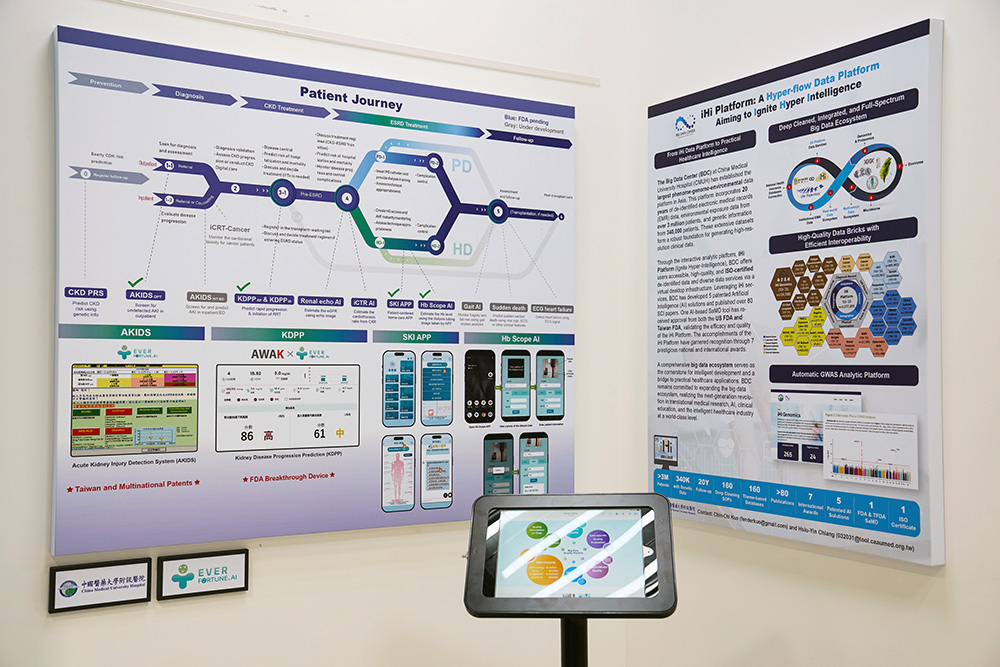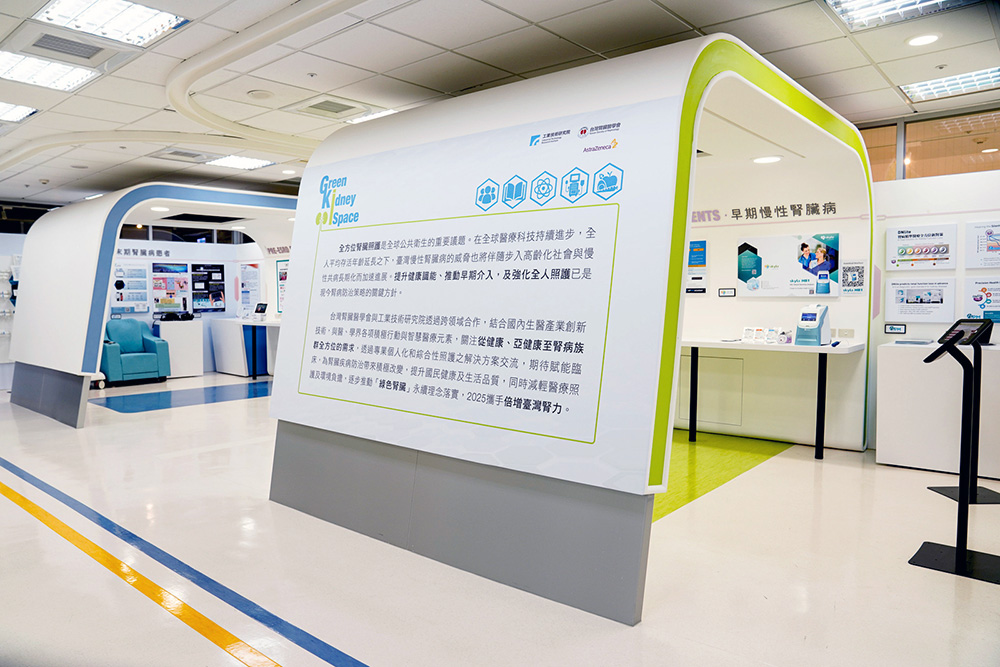R&D Focus
Building Kidney Health Ecosystem with AstraZeneca
In 2020, ITRI established the Taiwan Integrated Biomedical Industrial Center (TIBIC), merging technology and healthcare to fast-track medical product launches. This initiative attracted AstraZeneca to establish the Future Healthcare Laboratory at TIBIC, a project that focuses on developing comprehensive lung healthcare and treatment solutions. This year, recognizing the growing need to address chronic kidney diseases (CKD), ITRI and AstraZeneca have collaborated once again and launched the Future Healthcare Laboratory 2.0 (hereinafter Lab 2.0) to create a dedicated treatment ecosystem.
“The public’s mindset on healthcare is no longer limited to disease treatment but has extended to preventative medicine and precision treatment,” said Eric Y. Chuang, Vice President and General Director of Biomedical Technology and Device Research Laboratories at ITRI. “This trend aligns perfectly with ITRI’s mission, as exemplified by our collaboration with AstraZeneca on Lab 2.0 for fostering awareness for CKD and comprehensive treatments,” he said.
Lab 2.0 encompasses everything a CKD patient might need, including family health education, awareness programs for high-risk individuals, proactive screening, AI healthcare for delaying renal diseases, and support for end-stage renal patients, such as dialysis equipment, monitoring analysis, and improvement plans.

The journey of a CKD patient and corresponding treatment technologies showcased in the Future Healthcare Laboratory 2.0.
To deliver this comprehensive care, Lab 2.0 leverages a network of 17 partners, including ITRI’s startups. Examples of Lab 2.0 technologies include: Skyla’s clinical chemical analyzer, which conducts 17 kidney function assessments within 15 minutes with a drop of fingertip blood; Bio Preventive Medicine’s non-invasive testing kit, which detects urine biomarkers to predict deterioration of kidney functions in type 2 diabetes and monitor prognosis post-kidney transplant; MegaPro Bio’s iron supplement for iron-deficiency anemia, which extends the supplement interval from 15 days to 3 months, significantly increasing treatment compliance and convenience for patients who cannot be treated with conventional options.
Beyond individual technologies, Lab 2.0 also fosters collaboration between doctors and patients through the Digital Insight Hub, a suite of AI and real-world data analysis tools introduced by AstraZeneca Taiwan. Among these tools are the Medigator SDM system that empowers shared decision-making by offering doctors a comprehensive view of each patient’s status, the TriNetX platform that facilitates data sharing among researchers across institutions, and the Pre-End-Stage Renal Disease Automatic Speech Recognition (Pre-ESRD ASR) system for improving communication accuracy between medical personnel and patients.

Lab 2.0 and Digital Insight Hub introduce precision big data and other smart medical technologies to accelerate medical solutions.